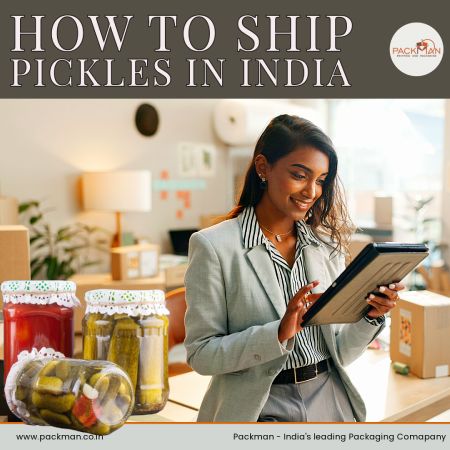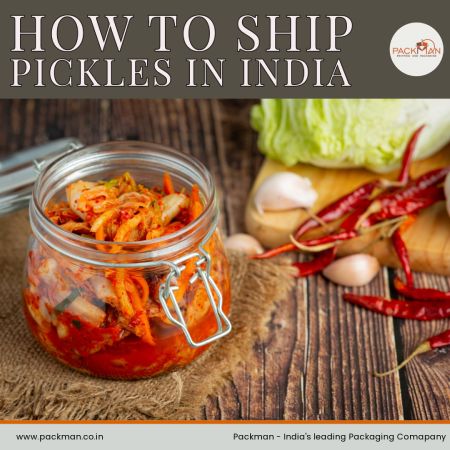As a food packaging manufacturer, we understand the importance of ensuring that products, especially delicate and flavorful items like pickles, reach their destination intact and in the best possible condition. Shipping pickles in India demands careful consideration of packaging materials, design, and protection against external factors. In this guide, we delve into the intricacies of packaging pickles for shipping, emphasizing the key aspects that contribute to a successful and secure journey from the manufacturer to the consumer.
What are the ways to ship pickles?
Mr. Gaurav Jalan, Founder and Director of India’s leading food packaging company Packman Packaging shares some ways to ship pickles in this article:
Selecting the Right Packaging Material: The choice of packaging material is critical when it comes to shipping pickles. Glass jars are a common and preferred choice due to their impermeability and ability to preserve the flavor and freshness of the pickles. However, to enhance safety during transportation, it is essential to cushion the glass jars adequately. Bubble wrap or corrugated dividers can be used to create a protective layer around each jar, minimizing the risk of breakage.
Sealing for Freshness: Airtight sealing is paramount to preserving the freshness and taste of pickles during transit. Ensure that the lids of the jars are tightly sealed and secured. For an extra layer of protection, consider using tamper-evident seals to reassure customers of the product’s integrity upon arrival. This step not only safeguards the product but also enhances the overall consumer experience.
Cushioning and Insulation: Pickles are sensitive to temperature changes and physical shocks. To protect them from external impacts and temperature variations, incorporate cushioning materials within the packaging. Bubble wrap, foam inserts, or corrugated dividers act as effective shock absorbers, preventing jars from knocking against each other and reducing the risk of breakage.
Secondary Packaging for Added Protection: Once the individual jars are secured, it’s time to consider the secondary packaging. Cardboard boxes are commonly used for shipping pickles in India. Select a box that snugly accommodates the jars, leaving minimal room for movement. This prevents jars from shifting during transit, minimizing the likelihood of breakage. Reinforce the box with quality sealing tape to ensure its structural integrity.
Labeling and Compliance: Clear and comprehensive labeling is crucial for the shipping of pickles. Include essential information such as the product name, manufacturing date, expiry date, and handling instructions. Additionally, adhere to all regulatory requirements and guidelines for food packaging in India. Compliance not only ensures the safety and legality of the product but also instills confidence in customers.
Consideration of External Factors: Weather conditions during transit can impact the quality of pickles. Protect shipments from extreme temperatures by incorporating insulation materials such as thermal liners or ice packs, depending on the weather forecast. This step is especially important during hot seasons to prevent the pickles from overheating and losing their quality.
Transparent Communication with Logistics Partners: Collaborate closely with logistics partners to communicate the specific requirements for shipping pickles. Provide clear instructions on handling, storage, and transportation conditions. This proactive approach minimizes the risk of mishandling during transit and ensures that the entire supply chain is aligned in preserving the quality of the pickles.
Shipping pickles in India demands meticulous attention to packaging details to guarantee that this beloved culinary delight reaches customers with its flavor and freshness intact. As a food packaging manufacturer, our commitment is to guide businesses in the creation of packaging solutions that prioritize product protection, compliance, and consumer satisfaction. By selecting the right materials, implementing effective cushioning, and considering external factors, we contribute to the seamless and secure transportation of pickles, reinforcing the reputation of our clients and the satisfaction of their customers.





